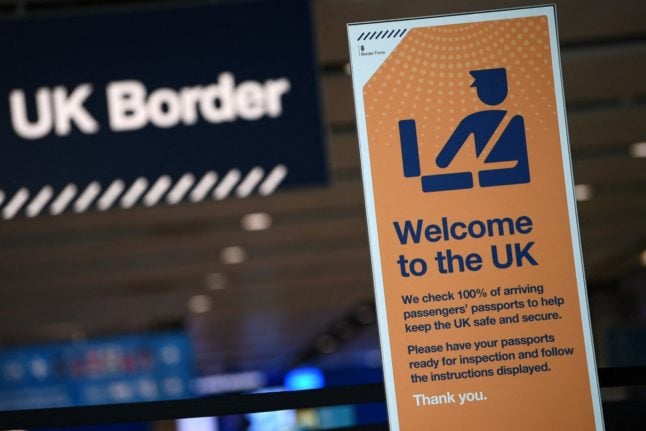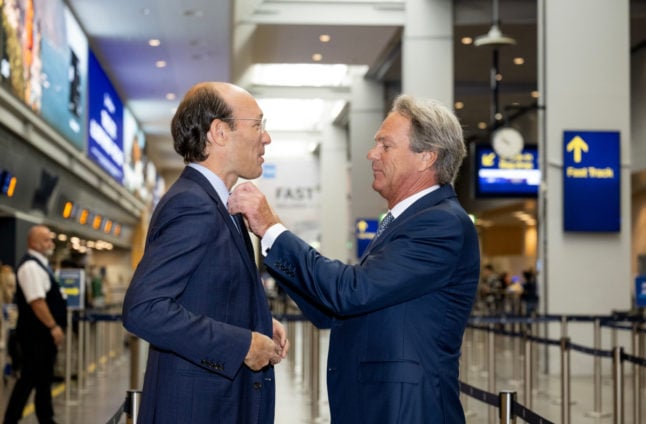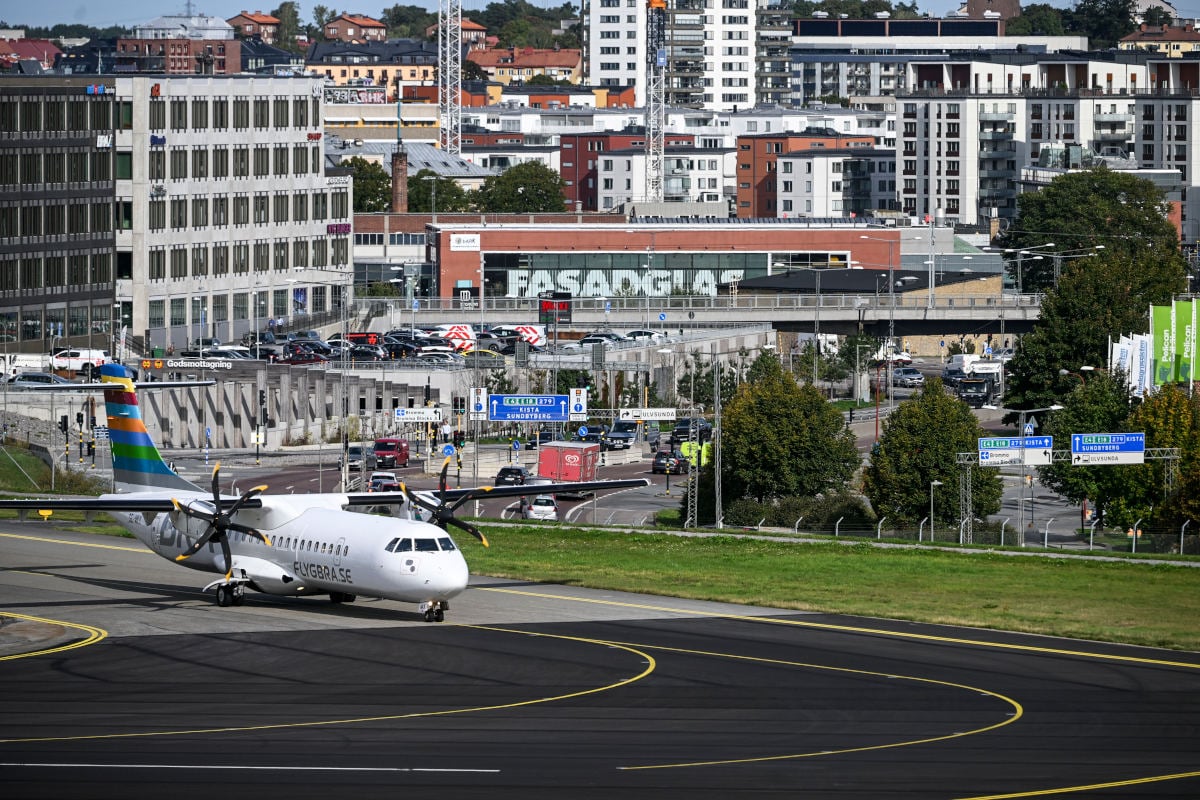The UK has introduced an electronic travel authorisation scheme known as ETA (Electronic Travel Authorisation) for people paying short visits such as tourists of those visiting family members.
The ETA – which costs £10, lasts for two years and must be applied for online in advance of your trip – is already in place for citizens of some countries, but in the spring of 2025 it will be expanded to include EU and EEA citizens such as French, German or Swiss nationals.
You can find full details of the scheme and how it works here.
The UK government information is largely geared towards tourists, and readers of The Local had questions – especially on how the changes affect people with residency in an EU or EEA country, on the position for EU spouses of a UK national and the changes for dual nationals.
Does this affect Brits who are resident in an EU/EEA country?
This system all depends on the passport you are travelling on, not where you live or whether you have a residency permit for another country.
So in short if you are travelling on your UK passport, you will be treated like every other Brit and won’t need an ETA. If you are a dual national, it depends on the passport you are travelling on (more on that below).
However Brits who have an EU partner or spouse (who don’t have a British passport) should be aware that the changes will apply to their spouse.
Does this limit stays in the UK for EU citizens who are married to a Brit?
ETA, like the EU’s new EES biometric passport checks and ETIAS visa waiver, does not change any of the existing rules around immigration or long-stay visas.
At present, citizens of a number of countries – including all EU/EEA countries and a number of non-EU countries such as the USA and Canada – benefit from visa-free travel to the UK for short visits. Those people can stay in the UK for up to 180 days per year without needing a visa, although they cannot work in the UK.
This category would cover tourists and people making short visits to family. Anyone who wants to stay longer than 180 days in a year, or who wants to work in the UK, would need a visa or to apply for residency through other routes such as the EU Settled Status scheme. This includes EU nationals who have a British spouse.
What changes under ETA is that the people making short stays will no longer benefit from visa-free travel – instead they must apply online for the ETA visa before travel.
Those who wish to stay longer or to work in the UK must apply for the relevant visa or residency permit type, exactly as they do now.
What about Irish passport holders?
The exception to these rules is for people travelling on an Irish passport. Because of the Common Travel Area between the UK and Ireland, those travelling on an Irish passport will not be required to get an ETA, and in fact nothing changes for them.
The exemption only applies if you are using your Irish passport to travel – if you have an Irish passport but are using another non-UK passport to travel you will be treated according to the passport you present.
Likewise, UK nationals are also exempt from the requirement – but only if they are using their UK passport to travel.
Do children need an ETA?
Yes, everyone entering the UK will need an ETA, including children and babies. The travel authorisation costs £10 for everyone – unlike the EU’s ETIAS, there is no cost exemption for over 70s or under 18s.
Do I need an ETA as an airline transit passenger? That seems mad if I’m only passing through the airport?
Yes, an ETA is required for everyone, even if you’re only passing through a UK airport as part of a connecting flight. This has sparked fury from the UK’s ‘hub’ airports such as Heathrow, where bosses say the change could cost them up to 4 million passengers a year.
The government says: “Requiring transit passengers to obtain an ETA stops people who may use connecting flights to avoid gaining permission to travel to the UK.”
What about dual nationals?
The key thing for dual nationals to remember is that your passports are not ‘linked’ – so the immigration official that you present your passport to has no way of knowing that you also have the passport of another country.
Dual nationals are therefore treated according to the passport they present. So let’s say you have a UK passport and an Italian one – if you travel to the UK on the UK passport, you will not need an ETA. However if you travel on the Italian passport you will need an ETA.
It is perfectly legal to use two passports while making a trip, so that you can enter the UK showing your UK passport and then on your return to Italy show the Italian passport – this allows you to avoid the formalities for foreigners in both countries. If you are doing this, you will just need to take care when supplying Advance Passenger Information (API) to your travel provider that you are supplying the right information for the passport that you will be using for each leg of the journey.
When does this start?
The ETA requirement is already in place for citizens of certain countries and then will continue the roll-out in two subsequent stages.
Citizens of Bahrain, Kuwait, Oman, Qatar, Saudi Arabia and the United Arab Emirates already need an ETA to enter the UK. From January 8th 2025 it will be extended to citizens of all non-EU/non-EEA countries and then from April 2nd it will be required for all EU/EEA citizens (with the exception of Ireland). Find the full list of countries here.
How do I get the ETA?
You apply and pay online before you travel – the UK government says that applications should be processed within three working days but that some could take longer. You cannot enter the UK until your application is processed.
Once issued, the ETA lasts for two years and allows multiple trips – although if your passport is renewed during that two-year period you will have to apply for a new ETA.
Find full details of how to apply here.
Why is the UK doing this?
It’s a security measure and is part of the UK’s plan to digitise its borders. The scheme is intended to reduce queues at the border, “helping to speed up legitimate journeys to the UK”, a government spokesman said.
It is very similar to the EU’s ETIAS visa waiver – due to come into effect in the spring of 2025 – and the US’s ESTA visa, which has been required for all visitors since 2009.




 Please whitelist us to continue reading.
Please whitelist us to continue reading.
If you have dual nationality, would both passports need to be in date? Could you show an expired passport?
What about a Danish passport holder who has a “ permanent right to remain” in the UK ( gained during the Brexit) but currently resides in Denmark. This year was no issue and just used the electronic gates like normal British passport holders .
So just to clarify, someone who lives in the UK with settled status does not have to register for the ETA when returning from the EU to the UK?
I am a dual national FR/UK,. Airlines will only allow you to register one passport per booking so I can’t see how you can enter “the right information for the passport that you will be using for each leg of the journey.” unless you book each leg individually which would be more expensive and require collecting baggage and checking it in again for the second leg.
Ah you’re talking about connecting flights? Yes, I can see how that would be more complicated as in booking terms it is just one ‘journey’. We were thinking more in terms of a simple return flight. I guess for a connecting flight it would be tricky, although you could check with your airline